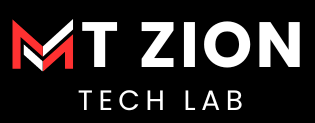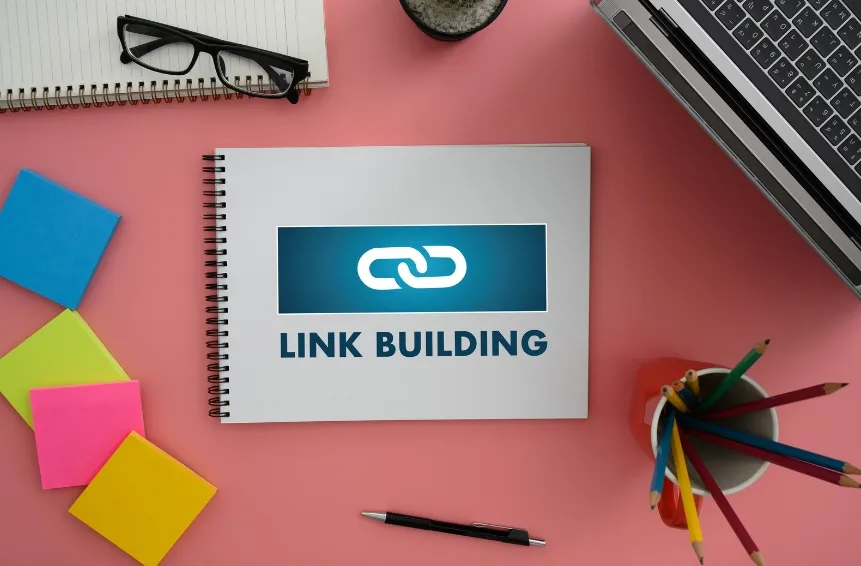Building authority in a digital landscape is vital for new websites seeking visibility, credibility, and rankings in search engine results. For new sites, link building is one of the most impactful ways to establish authority and generate organic traffic. This guide provides actionable strategies for new website owners who want to build a solid backlink profile, enhance SEO, and gain trust within their niche.
Why Link Building is Essential for New Websites
Starting a new website means having little to no digital footprint, which can make it challenging to rank on search engines and attract meaningful traffic. Search engines, especially Google, consider backlinks as endorsements, a signal that your content is trustworthy and valuable. Quality backlinks from credible sites can help accelerate ranking and make your site visible to your target audience. While traditional marketing may establish brand authority, link-building boosts your website’s digital authority, positioning you as a credible player in your industry.
Understanding the Basics of Link Building for New Websites
Before diving into specific link-building strategies, let’s cover some fundamentals.
What is Link Building?
Link building is the process of acquiring hyperlinks from other websites to your own. Search engines use these links to crawl between different pages on the web, recognizing relationships and assessing the quality of content. Quality backlinks from authoritative sites act as “votes” for your content, signaling relevance, quality, and trustworthiness.
Types of Links
When building links, it’s essential to understand the different types and what they bring to your SEO efforts:
- Do-follow Links: Pass authority from the linking site to yours, impacting search engine rankings.
- No-follow Links: Don’t pass authority but still bring referral traffic and potentially more visibility.
- Internal Links: Links within your website that connect pages, helping search engines understand structure.
- External Links: Outbound links from your website to other credible sites, contributing to your content’s authority and relevance.
Proven Link-Building Strategies for New Websites
With foundational knowledge established, here’s how you can begin implementing link-building strategies designed to accelerate authority-building for new sites.
1. Focus on Creating High-Quality Content
Creating content that resonates with your audience is the cornerstone of any link-building strategy.
Identify Valuable Content Types
- Guides and Tutorials: Detailed guides can position you as an authority in your niche.
- Data-Driven Studies: Sharing unique data or insights creates linkable content that others reference.
- Listicles and Resource Lists: Content that rounds up tools, resources, or tips within an industry attracts natural backlinks.
Write Guest Posts
Reach out to established websites within your industry and offer to create guest posts. In exchange, you get a backlink, and they receive high-quality content. Here’s how to get started:
- Identify authoritative sites within your niche.
- Pitch unique topics that would add value to their audience.
- Link naturally to relevant content on your site within the guest post.
2. Leverage Social Media Platforms
While social media links are generally no-follow, they play a crucial role in generating traffic and building your online presence.
Choose Platforms Wisely
Select the social platforms where your target audience is most active. For example, LinkedIn is ideal for B2B connections, while Instagram and Facebook are excellent for B2C interactions.
Promote Sharable Content
Use visuals, infographics, or interactive elements to make your content highly shareable. Even though social links may not directly influence SEO, they attract attention and encourage others to link to your content from their sites.
3. Build Relationships within Your Niche
Networking with industry peers, bloggers, and influencers can create opportunities for organic link-building.
Join Niche-Specific Online Communities
Participate in online communities and forums like Reddit, industry Facebook groups, or specialized discussion boards. Be active, answer questions, and subtly promote your content where relevant, creating valuable connections.
Conduct Expert Roundups
Expert roundups involve gathering opinions or insights from several industry experts. Not only do they attract backlinks from experts who share the piece with their audience, but they also build authority by associating your site with reputable figures.
4. Utilize Directory Submissions Wisely
Though many web directories are outdated, some reputable, niche-specific directories still hold SEO value.
Avoid Spammy Directories
Seek directories that are reputable, specific to your industry, or local to your area. Avoid directories that charge for listings without any editorial standards, as they could harm your ranking.
Submit to Quality Directories
- Business Directories: Listing on Google My Business and Bing Places is essential.
- Industry Directories: Many industries have reputable directories; research those specific to your field.
- Local Directories: Sites like Yelp or local Chamber of Commerce websites can be valuable for local SEO.
5. Leverage “Broken Link” Building
Broken link building involves finding broken links on other sites and offering your content as a replacement.
How to Find Broken Links
- Use tools like Ahrefs, SEMrush, or Moz to locate broken backlinks on authoritative sites within your niche.
- Create relevant content to replace the broken link.
- Reach out to the webmaster, highlighting the broken link and offering your content as a solution.
This approach allows you to earn links by offering a valuable resource to help site owners improve their content.
6. Reclaim Unlinked Brand Mentions
For new websites, brand mentions without links are common as you establish your name in the industry.
Monitor Brand Mentions
Use tools like Google Alerts, Ahrefs Alerts, or Mention to keep track of when your brand name is mentioned online. If you find a mention that isn’t linked, reach out politely to the site owner and ask if they would consider linking to your website.
Offer Value in Return
When reaching out, emphasize the value you’re offering, such as improved user experience, better resource links, or updated content.
7. Leverage HARO (Help a Reporter Out)
HARO connects journalists with experts. Responding to HARO queries can secure high-quality links from reputable media outlets.
How to Respond Effectively
- Sign up for HARO and monitor daily queries.
- Respond quickly with clear, concise, and valuable answers.
- Position yourself as an industry expert to increase the likelihood of selection.
Tracking and Measuring Your Link-Building Success
Tracking your progress helps refine and optimize your link-building strategy.
Using Analytics and SEO Tools
SEO tools like Google Analytics, Ahrefs, Moz, and SEMrush allow you to track link-building progress by showing the growth of referring domains, backlinks, and organic traffic.
Focus on Relevant KPIs
- Domain Authority (DA): The quality of linking domains.
- Organic Traffic: The volume of traffic from search engines.
- Keyword Rankings: Changes in search rankings for key terms.
Link-Building Mistakes to Avoid
Not all link-building strategies are effective or safe. Here’s what to watch out for:
Avoid Low-Quality Links
Links from spammy websites or low-quality directories can lead to penalties from Google. Focus on quality over quantity.
Don’t Engage in Link Schemes
Purchasing links, using automated tools to create links, or participating in link schemes is against Google’s policies and can result in penalties. Stick to ethical link-building methods to maintain your site’s credibility and ranking potential.
Conclusion
Link building is a vital strategy for establishing authority and driving traffic to new websites. With a strategic approach to building quality links, leveraging relationships, and creating valuable content, new websites can overcome the initial visibility hurdles and set a solid foundation for long-term growth. Remember, link-building is an ongoing process that requires patience and persistence. Over time, these efforts will pay off, helping your website secure a trusted, authoritative position within your niche.
Whether you’re a small business, a blogger, or a budding eCommerce store, implementing these link-building strategies will give your new website the credibility it needs to thrive in a competitive digital environment. Start building those links today, and watch your authority and visibility grow!

